Make artist images sort by count instead of by name. I've recently added a few singles in my library that have been cluttering the previous artist image algorithm with non-ideal covers. Instead of sorting by name (Which was really an artifact of the old MediaStore engine anyway), sort by the amount of songs of each album instead, which hopefully should weight images less towards singles and more towards albums (And especially albums the user likes). |
||
|---|---|---|
| .github | ||
| app | ||
| fastlane/metadata/android | ||
| gradle/wrapper | ||
| info | ||
| .gitignore | ||
| build.gradle | ||
| CHANGELOG.md | ||
| gradle.properties | ||
| gradlew | ||
| gradlew.bat | ||
| LICENSE | ||
| prebuild.py | ||
| README.md | ||
| settings.gradle | ||
![]()
Auxio
A simple, rational music player for android.
Changelog | FAQ | Licenses | Contributing | Architecture
About
Auxio is a local music player with a fast, reliable UI/UX without the many useless features present in other music players. Built off of Exoplayer, Auxio has a much better listening experience compared to other apps that use the native MediaPlayer API. In short, It plays music.
I primarily built Auxio for myself, but you can use it too, I guess.
The default branch is the development version of the repository. For a stable version, see the master branch.
Screenshots
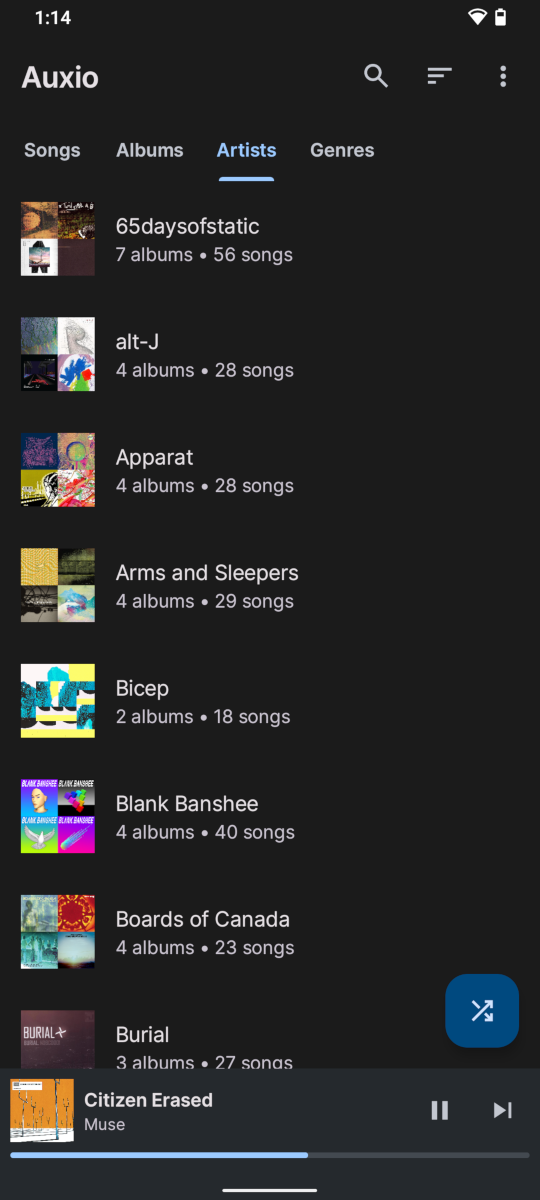
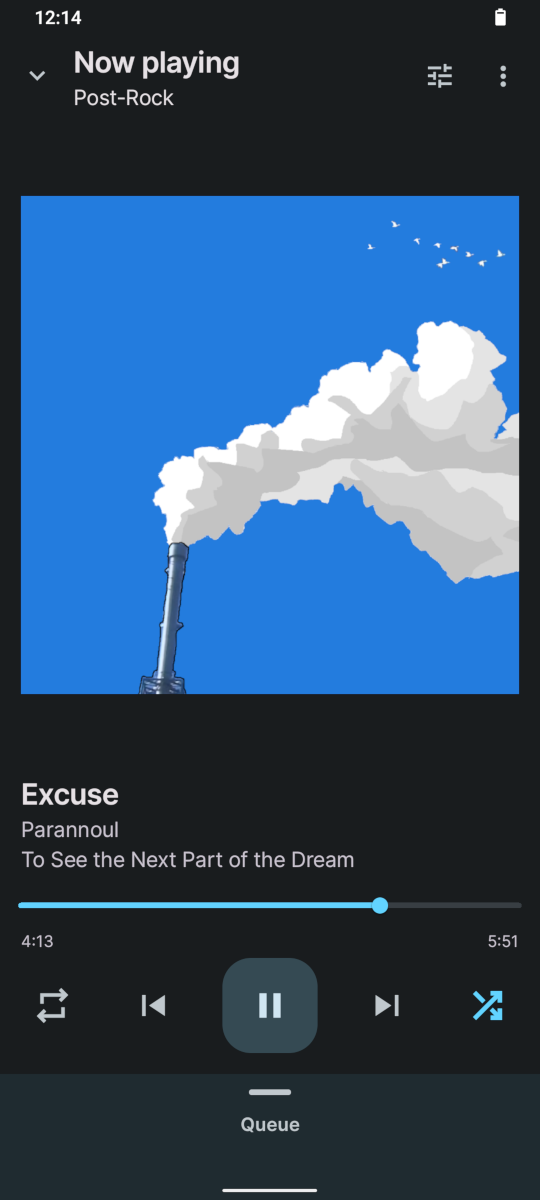
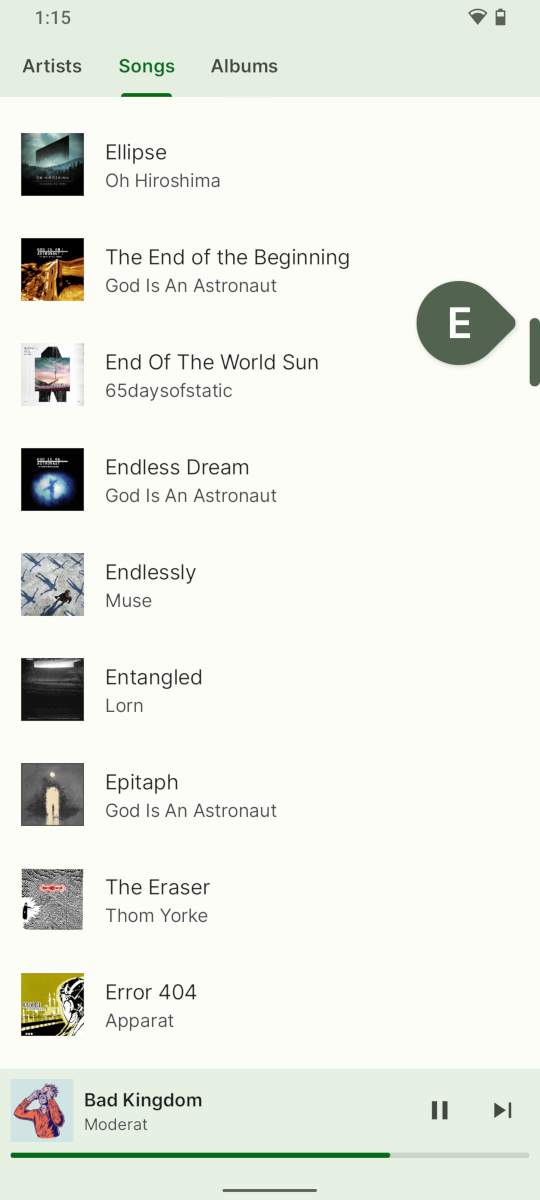
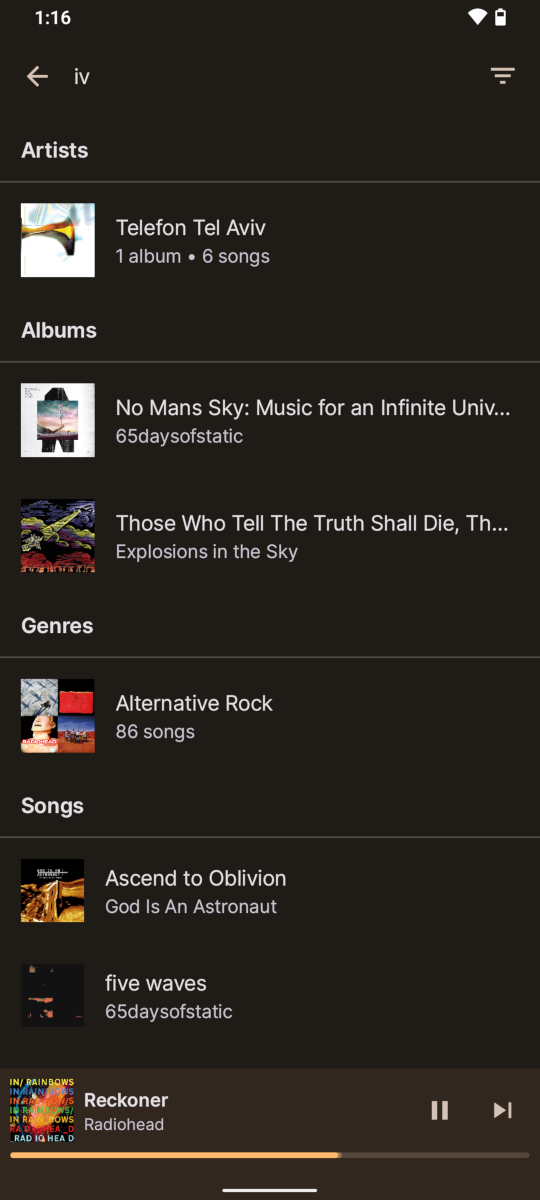
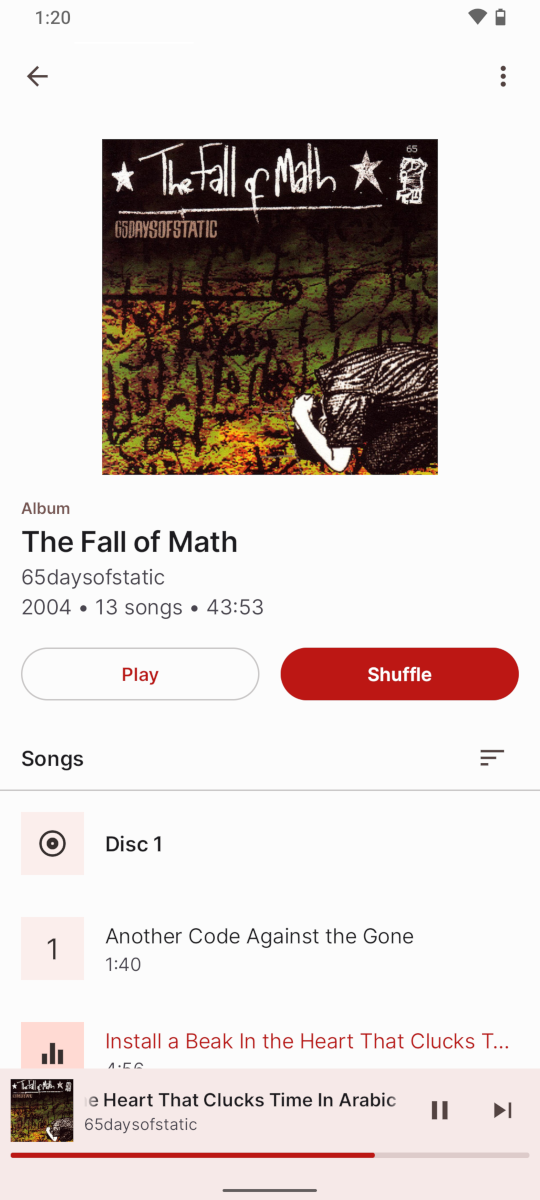
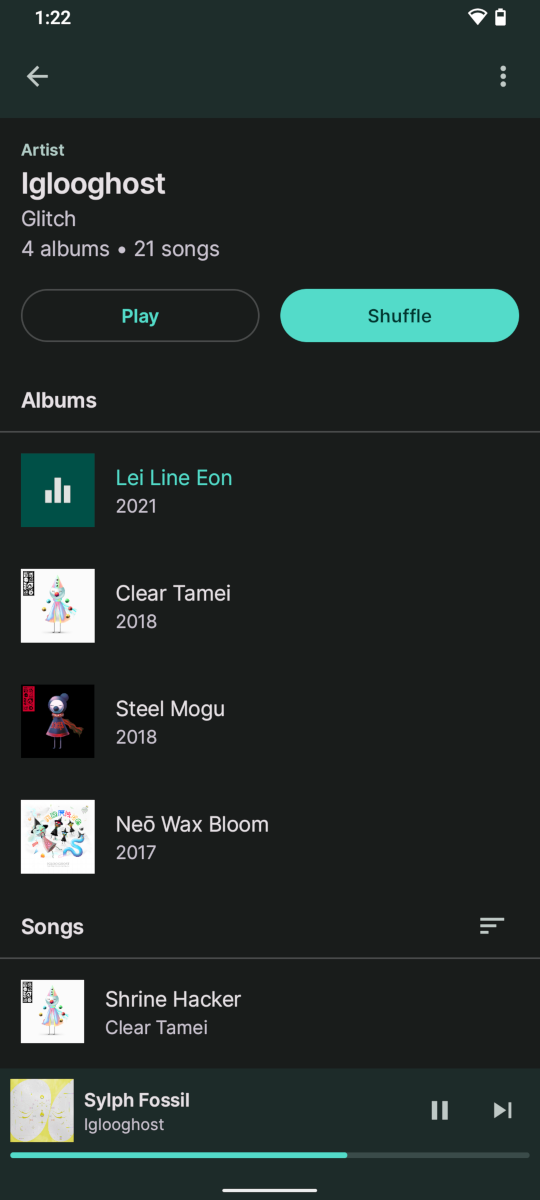
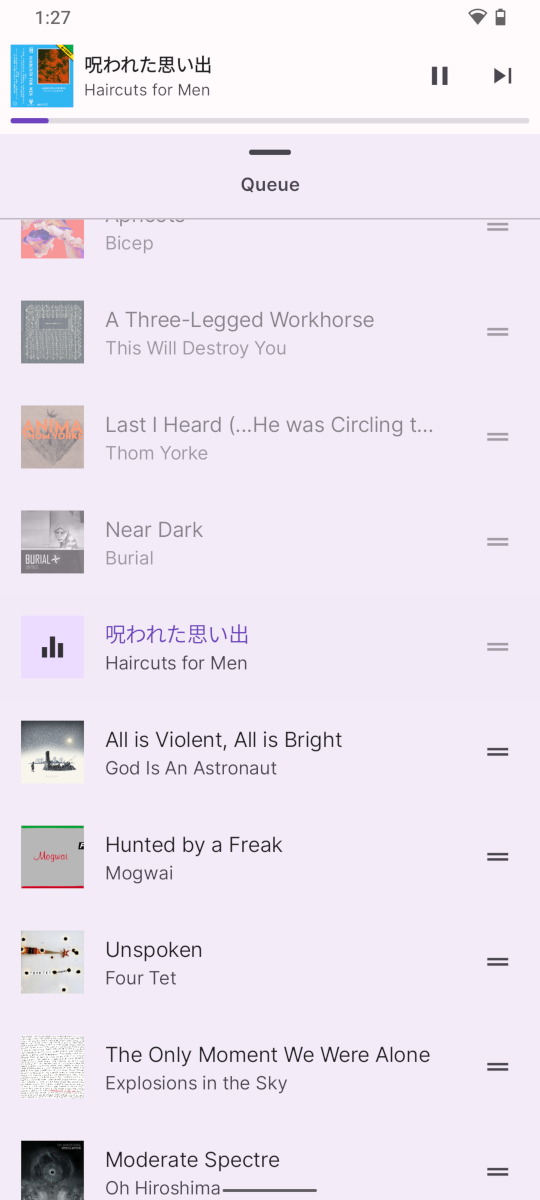
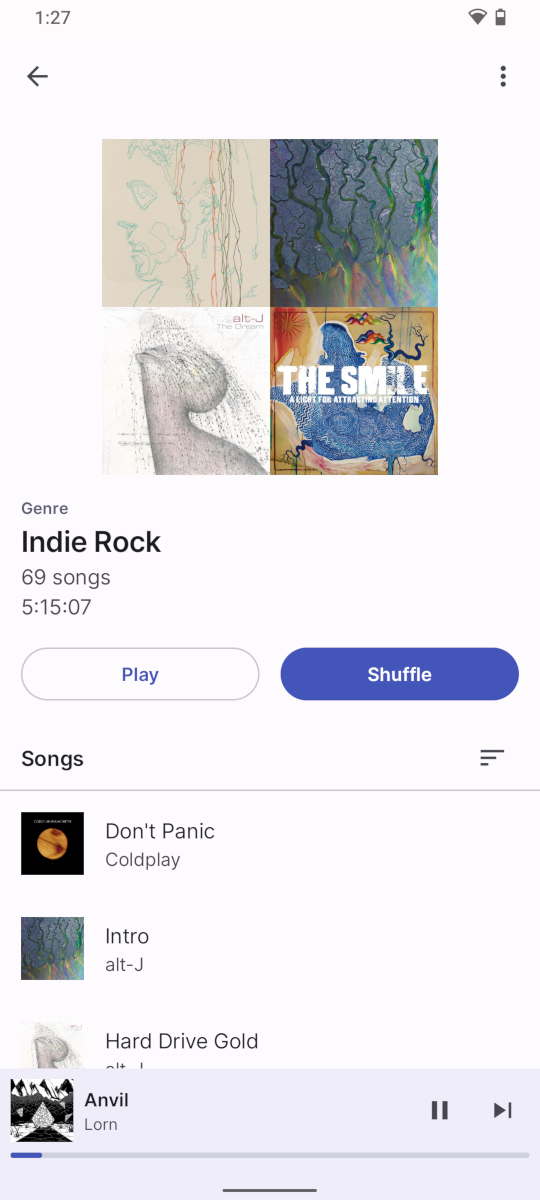
Features
- ExoPlayer based playback
- Snappy UI derived from the latest Material Design guidelines
- Opinionated UX that prioritizes ease of use over edge cases
- Customizable behavior
- Advanced media indexer that prioritizes correct metadata
- Precise/Original Dates, Sort Tags, and Release Type support (Experimental)
- SD Card-aware folder management
- Reliable playback state persistence
- Full ReplayGain support (On MP3, MP4, FLAC, OGG, and OPUS)
- External equalizer support (ex. Wavelet)
- Edge-to-edge
- Embedded covers support
- Search Functionality
- Headset autoplay
- Stylish widgets that automatically adapt to their size
- Completely private and offline
- No rounded album covers (Unless you want them. Then you can.)
To come in the future:
- Playlists
- Liked songs
- Artist Images
- More customization options
- Other things, probably
Permissions
- Storage (
READ_EXTERNAL_STORAGE): to read and play your media files - Services (
FOREGROUND_SERVICE,WAKE_LOCK): to keep the music playing even if the app itself is in background
Building
Auxio relies on a custom version of ExoPlayer that enables some extra features. So, the build process is as follows:
cdinto the project directory.- Run
python3 prebuild.py, which installs ExoPlayer and it's extensions.- The pre-build process only works with *nix systems. On windows, this process must be done manually.
- Build the project normally in Android Studio.
Contributing
Auxio accepts most contributions as long as they follow the Contribution Guidelines.
However, feature additions and major UI changes are less likely to be accepted. See Accepted Additions for more information.
License
Auxio is Free Software: You can use, study share and improve it at your will. Specifically you can redistribute and/or modify it under the terms of the GNU General Public License as published by the Free Software Foundation, either version 3 of the License, or (at your option) any later version.






